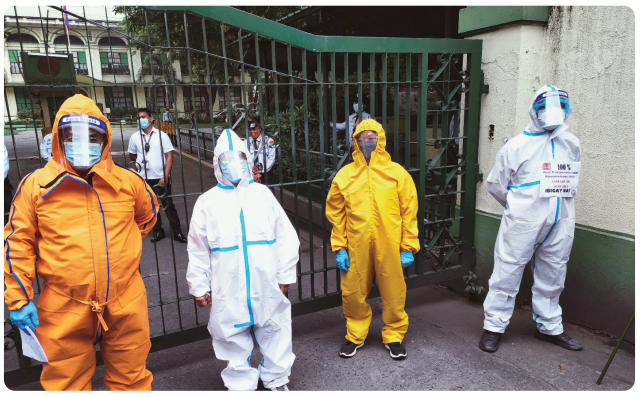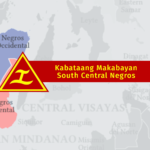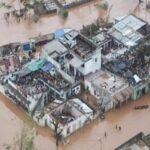
By MA. RUTH AGNES DIOKNO QUINONES
Bulatlat.com
MANILA — Three years ago, Maria Vivien Yucor, a nurse at a hospital in Pasig City, recalled how her heart would grow heavy every time she had to put on her uniform, anxiously anticipating how the next 16 hours of her life in the emergency room would look like.
“My colleagues and I would say back then, ‘I hope we just get infected with the virus so we can rest. Others would say we are already giving up and don’t want to work anymore,’” Yucor told Bulatlat.
This is a common scenario for health workers during the height of the COVID-19 pandemic, which exacerbated their already dire working conditions and the need to raise the bar and strengthen the country’s public health system.
At the onset of the pandemic, a study revealed the inadequate number of health workers and the lack of protection that are afforded to them, including sufficient personal protective equipment supply to keep them from contracting the virus.
Read: Study reveals poor protection for health workers amid fight vs. COVID-19
Last Labor Day protest, health workers were among those who joined the march to Mendiola and later to the US embassy in Manila to assail the continuing plight they are facing. In a statement, they reiterated their calls for a P33,000 entry salary for private and public health workers, the regularization of contractual health workers, and the release of unpaid benefits such as Health Emergency Allowance for private and LGU health workers and Performance Based-Bonus of 2021 to 2023, to name a few.
“We are the so-called heroes of the COVID-19 pandemic but overworked, underpaid, and understaffed,” Yucor said.
No meaningful benefits, protection
In response, the Philippine government passed Republic Act No. 11712 or the Public Health Emergency Benefits and Allowances for Health Care Workers Act on April 27, 2022 to supposedly recognize “the critical role of health care workers in providing quality health care to and ensuring disease prevention in the general population, especially in times of national public health emergencies.”
The law stipulates that the government will reciprocate “by promoting their welfare through the grant of mandatory benefits and allowances with utmost efficiency.”
But for health workers, the supposed protection and benefits they were supposed to be receiving was both insufficient and plagued by delays.
“During the COVID-19 pandemic, I was hesitant to go to work every day, mainly because I might contract the virus. I am concerned that my family will get sick with a highly contagious disease with no known cure yet at that time,” said Milady Ann Limpin, a patient experience officer in a hospital in Quezon City.
Like Yucor, Limpin said the height of the pandemic brought constant anxiety as she fears contracting the virus not only in her workplace but also in her daily commute to work.
Last year, Health Secretary Teodoro Herbosa clarified that one contributing factor to the delay is the lower tax collection recorded in 2021 and 2022. If the funds are categorized as unprogrammed, he said that the budget department can only release them once the national government collects adequate taxes.
Another possible cause for the delay in distributing the allowance could stem from hospitals’ failure to provide lists of eligible health workers to receive the benefit. Some hospitals may face compliance issues, contributing to the delay in disbursing the funds.
In an official statement, the Department of Budget and Management revealed said their disbursements for health workers benefit has amounted to P12.1 billion ($209,700) for 2021, P28 billion ($485,200) for 2022, P31.1 billion ($538,900) for 2023, and P19.96 billion ($345,800) for 2024, amounting to a total of P91.28 billion ($1.59 billion).
Jao Clumia of the AHW said, the prolonged delay in receiving these benefits affects the morale and service of healthcare workers. They feel disheartened, leading to the exodus of frontline workers.
“First, the morale of our health workers is affected. They are disheartened, and this is contributing to the exodus of our workers. While the exodus already occurred, the COVID-19 pandemic worsened it because of the lack of benefits,” said Clumia.

Understaffing remains a problem
Cristy Donguines, a nurse supervisor at the Jose Reyes Memorial Medical Center, said she shares Clumia’s observation.
Nowadays, she said that from the over 50 nurses in their hospital operating room, there are only about 30 as many have resigned and worked overseas while the plantilla positions for nurses remain unfilled by the health department.
“Then, as a supervisor, I have to divide them into three shifts a day for seven days a week. There are times when we cannot have our day off. If one is absent for the day, that is going to be a big problem,” she told Bulatlat at the sidelines of today’s protest action.
Apart from their hospital duties, Donguines said there are nurses who go beyond their work and even take on administrative tasks to ease the work in the hospital.
A study revealed that the effects of migration were notably heightened during the COVID-19 pandemic. This period witnessed widespread nurse resignations and subsequent migrations, driven by inadequate salaries, undelivered benefits, hazard pay, and delays in insurance reimbursements.
In 2019 alone, over 17,000 Filipino nurses are working overseas.
“The government has to realize that the roots of the understaffing here is really the low salary, low benefits, and poor working conditions,” she said.
The understaffing, Donquines said, is not only a burden to health workers but most importantly to their patients who mostly come from poor and marginalized communities, who will have to wait in long queues to be able to get the surgery they need.
As a result of these circumstances, frontline healthcare workers such as Milady Ann and Maria Vivien are urging the government to address the state of the healthcare system and the conditions of its workers. Despite being hailed as heroes of the pandemic, they continue to experience excessive workloads and inadequate pay.
For its part, the AHW remains steadfast in urging the government to address these allowances. The union is also encouraging all healthcare workers and related groups to persistently advocate for the timely release of these benefits. (With reports from Janess Ann J. Ellao / Bulatlat)



